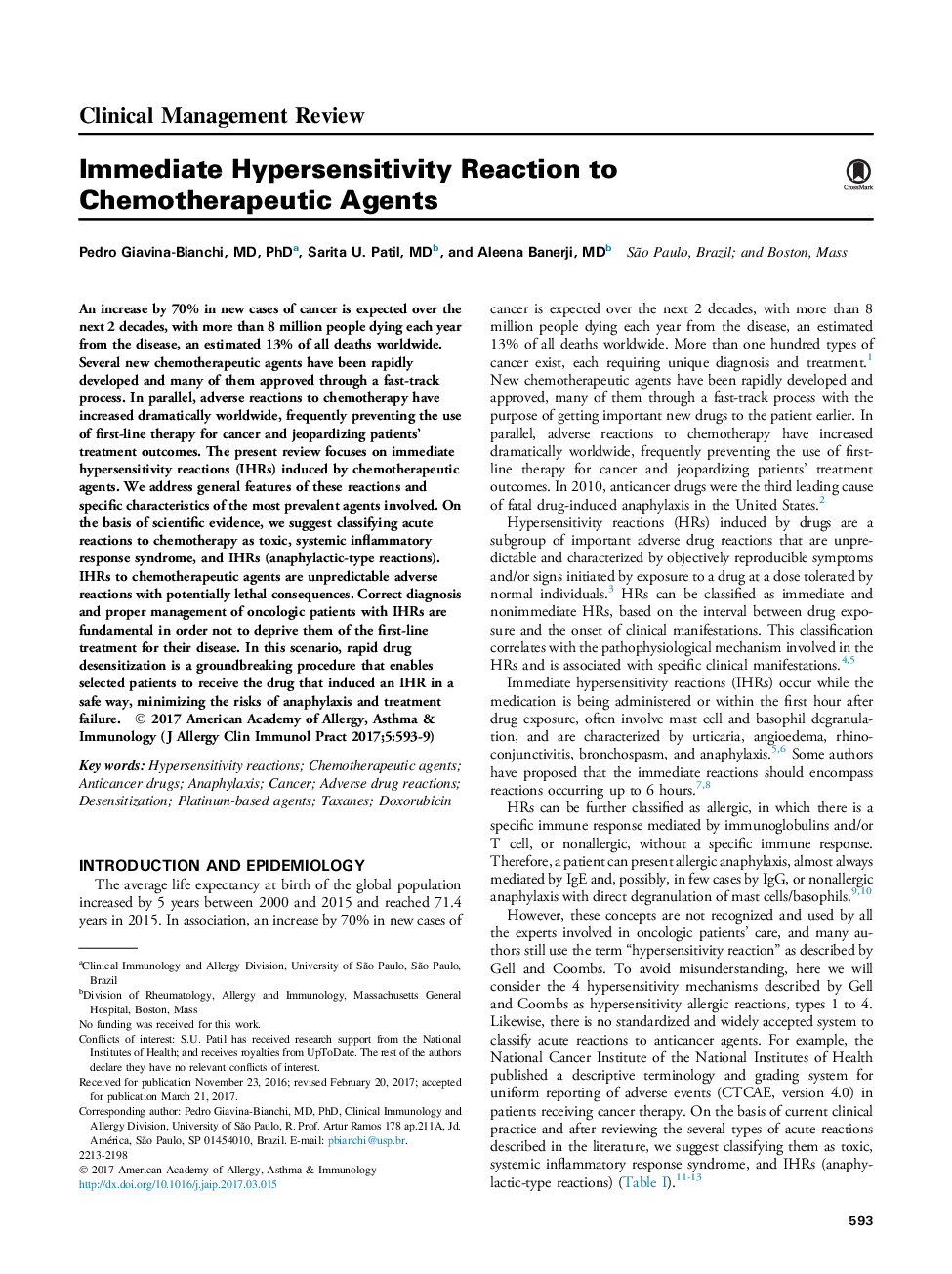| Article ID | Journal | Published Year | Pages | File Type |
|---|---|---|---|---|
| 5647227 | The Journal of Allergy and Clinical Immunology: In Practice | 2017 | 7 Pages |
Abstract
An increase by 70% in new cases of cancer is expected over the next 2 decades, with more than 8 million people dying each year from the disease, an estimated 13% of all deaths worldwide. Several new chemotherapeutic agents have been rapidly developed and many of them approved through a fast-track process. In parallel, adverse reactions to chemotherapy have increased dramatically worldwide, frequently preventing the use of first-line therapy for cancer and jeopardizing patients' treatment outcomes. The present review focuses on immediate hypersensitivity reactions (IHRs) induced by chemotherapeutic agents. We address general features of these reactions and specific characteristics of the most prevalent agents involved. On the basis of scientific evidence, we suggest classifying acute reactions to chemotherapy as toxic, systemic inflammatory response syndrome, and IHRs (anaphylactic-type reactions). IHRs to chemotherapeutic agents are unpredictable adverse reactions with potentially lethal consequences. Correct diagnosis and proper management of oncologic patients with IHRs are fundamental in order not to deprive them of the first-line treatment for their disease. In this scenario, rapid drug desensitization is a groundbreaking procedure that enables selected patients to receive the drug that induced an IHR in a safe way, minimizing the risks of anaphylaxis and treatment failure.
Keywords
Related Topics
Life Sciences
Immunology and Microbiology
Immunology
Authors
Pedro MD, PhD, Sarita U. MD, Aleena MD,
